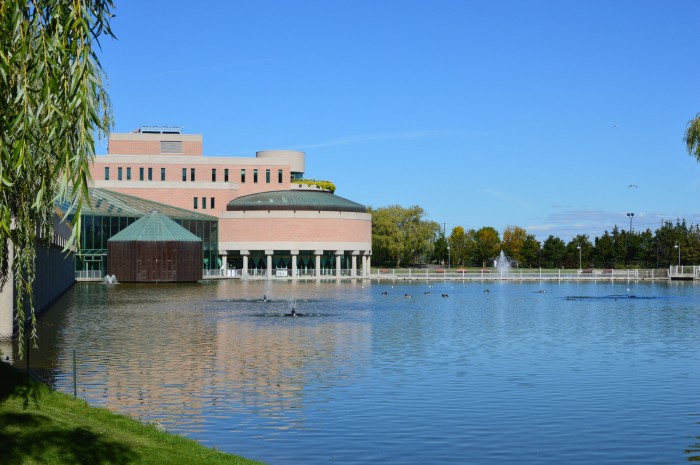Every year, thousands upon thousands of new immigrants make a new home in Canada. A very welcoming country, Canada is known as the most culturally diverse location in the world.
Markham and Toronto in particular, are two very popular cities for newcomers.
Whether you are looking to make a move and start fresh or simply looking for investment opportunities, the Canadian housing market is a great choice. Alternatively, that choice may have already been made for you via a work transfer or relocation opportunity. Whatever your reasons, the following guide will surely help you in your journey.
Getting A Mortgage
Unless you have the ability to pay for your new house without a loan, you’ll require financing in the form of a mortgage. Before you even begin to shop, you should obtain a pre-approval from a Canadian lender. Whether it be through one of the major banks or an alternate lender, you’ll want to find out exactly how much money you’ll have to shop with. Another great option is to contact a mortgage broker who will shop various lenders for you and guide you through the financial aspects of your loan.
Lending guidelines for newcomers can change often and will vary based on your permanent or temporary resident status and whether or not you’ve already established a Canadian credit history. Contrary to what many believe, an established credit history in Canada is not necessary to obtain a mortgage, however, it will certainly help and possibly give you access to a better interest rate.
You’ll also have to provide a minimum down payment in order to obtain your financing. Typically this will range from 5%, if you already have a Canadian employment and credit history to 35%, if you have no history whatsoever. The best advice would be to contact a local mortgage specialist or mortgage broker to help you determine your requirements based on your personal situation. Martin can make recommendations for you, just ask!
Other Costs
In Canada, if your down payment is less that 20% of the home’s purchase price, you’ll likely have to obtain Mortgage Loan Insurance which will roughly add an additional 1-3% to your mortgaged amount. This insurance helps protect banks and lenders against homeowners defaulting on their loans while also helping new home buyers purchase a home with a minimal down payment and allowing them to obtaining a better interest rate.
You should also be aware of some hidden costs such as legal fees and land transfer taxes. While your legal fees will often cost less, you should budget approximately $2,000. Land transfer taxes, however, will cost you more. It’s important to note that you’ll be responsible for paying a Provincial Land Transfer Tax and an additional Municipal Land Transfer Tax if you are buying a home in Toronto. To calculate the amount of tax you would owe on your home purchase, click here. It is also advisable to have a little extra put aside for miscellaneous costs that will certainly arise.
Once you’ve bought your new house and have already moved in, you’ll have a new set of housing related costs you’ll have to be familiar with. For more information on those costs visit The Real Costs Of Owning A Home In Markham, Ontario.
Choosing a Real Estate Agent
Choosing a real estate agent will be a very important step in your process. There’s no shortage of real estate agents in Markham to choose from. In fact, there are thousands, but you’ll want to make sure the agent you choose is a good fit for you.
How do you choose a good agent? Well, you’re likely only dealing with the purchase of a new home so let’s focus on the buying side.
For starters, your agent should be able to demonstrate a working knowledge of the cities and neighbourhoods you are considering. This knowledge is extremely important, especially if you’re new to the area. Your agent should have knowledge of the pros and cons of different neighbourhoods, knowledge about the schools, the amenities, transportation and the demographics. They should also be knowledgeable about the various laws, regulations, construction styles and techniques found in your preferred location.
It’s also very important to feel like your agent understands your needs and is quick to respond to you when you have questions, because you’ll likely have plenty of them along the way. Building trust and a good rapport is essential to a good working relationship. This can sometimes be a little more difficult when you live overseas but it’s important to always keep the lines of communication open. It’s also never a bad idea to ask for references and/or testimonials either.
Once you’ve chosen your real estate agent, you will be expected to formalize your relationship by signing a Buyer Representation Agreement. A Buyer Representation Agreement (B.R.A.) is a standard real estate form that obliges your agent to become legally responsible for pursuing your best interests in return for your exclusive commitment to them. Once you have made this decision, your Realtor will know just how serious you are about buying a house and will be able to devote more of their time towards helping you.
Making The Offer
After weeks, if not months of shopping around, you’ve finally found the perfect house. Now what? It’s time to make an offer to purchase the home. The first thing you’ll need to know is that a deposit will be due, normally within 24 hours of the offer being accepted so if your funds are tied up in investments or otherwise not accessible, make sure to free up approximately 5% of your purchase price. This amount is negotiable with the seller. Your deposit will be held in a trust account and will go towards your total down payment on closing.
Your offer will also likely include a condition to obtain satisfactory financing as well as a satisfactory home inspection. Both of these conditions are written for your benefit and are negotiable but typically last 5 business days. Other conditions and clauses will likely be included and will vary from deal to deal based on your situation and the house itself. Your agent will help you with all the required paperwork and ensure you get the best deal possible while protecting your interests.
There is of course, much, much more to know when buying a house in Canada as a newcomer/immigrant and you can get more information from Canada Mortgage and Housing Corporation but the most important thing will be to surround yourself with a good team. A top real estate agent, a great mortgage broker/specialist and a reputable lawyer to help you close the transaction.
Martin has a lot of experience helping newcomers buy a house in Markham and the surrounding areas, including Unionville, Stouffville and Toronto. He will take the time to ensure your experience is a positive one and as stress free as possible. If you have any questions, please ask. He would love to help!

